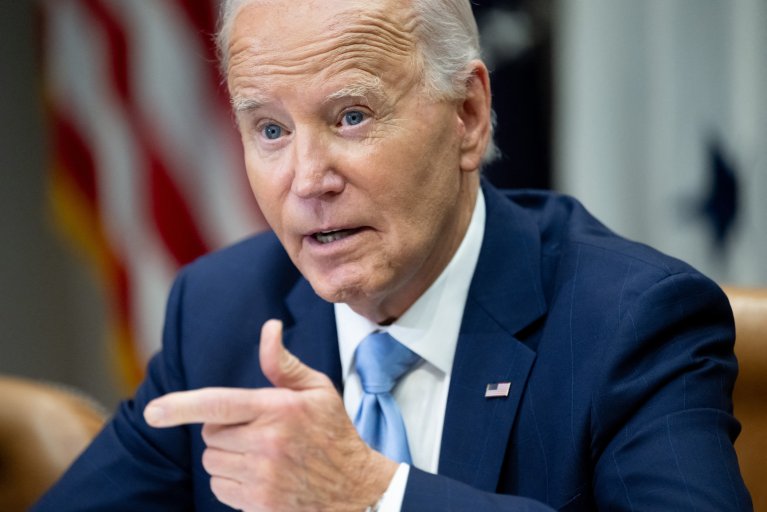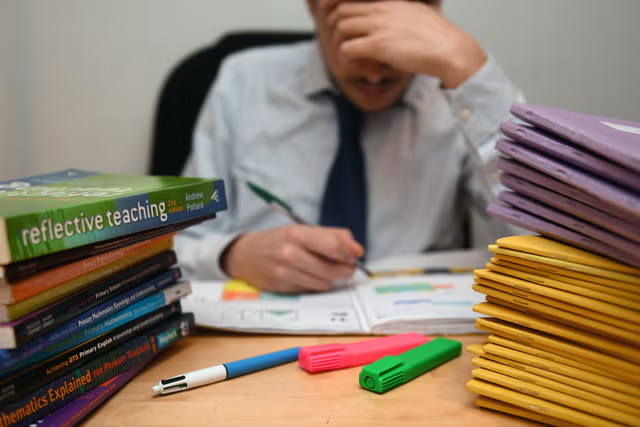In a city where educational success coupled with one's connections are often viewed as the roadmap to future opportunities, securing a spot at one of New York City's prestigious private schools can be immensely competitive.
Enter Dana Haddad, an admissions consultant who has become an invaluable advisor to high-profile families looking to navigate the city's elite school landscape. With her extensive background in education, she provides the expertise needed to help students gain entry into some of the nation's—and even the world's—top academic institutions. But Haddad, who lives in New York City and focuses her services there, said that while many of these schools offer prestige, they can come at an emotional cost if things go wrong and that it is important to get each student into the right place for them.
The admissions consultant opened up to Newsweek about how the elite get their kids into the best schools, and how she works with them to ensure each child is the right fit for their future alma mater.
"Parents always want what I call the 'cocktail party schools,' the schools that draw admiration at social gatherings...They're looking for ways to distinguish their child and their family," Haddad, a private admissions consultant at New York Admissions, told Newsweek. "But my job is to balance those desires with what is truly best for the child.
"Parents seek guidance because they want to position themselves in the best light possible for many of these institutions."
The Admissions Process
The application process for getting into one of New York City's most elite schools can be particularly daunting for families unfamiliar with the system. Aware of the disparity between what parents often want and what is best for their child, Haddad's first port of call is to help her clients find the balance between what a student desires and what their parents expect.
"What the parents want isn't always what's best for the kids," Haddad said. "But, most parents come to me open to learning about their children's needs and strengths.
"Ultimately, you don't want to set your kid up for failure; you want them to be successful, and so, the schools that parents want initially often change after we discuss their child's strengths and weaknesses."
Once both the student and their eager-to-learn parents are on the same page, Haddad's consulting process continues with work to understand both the student and the parents' aspirations.
"We start by meeting with the parents to understand the child and what the family deems important for their education," she said. "Then we create a school list, often filled with those 'cocktail party schools'—the prestigious institutions that draw admiring glances at gatherings.
"Parents often want their children to attend schools with strong academics and robust extracurricular programs, but they also need to consider their child's personality and individual needs."
After Haddad has honed in on finding the schools that fit the child's abilities and goals, something that comes from lengthy conversations, attention then turns to the practical part of the admissions process: Exams.
Preparation is often multifaceted, involving tutoring for entrance exams such as the ISEE or SSAT, interview coaching, and developing a compelling narrative highlighting the child's unique strengths, extracurricular interests and talents.
"Being well-rounded is key," Haddad said. "The exams are just one piece of the puzzle.
"These top schools also consider student interviews, parent interviews, teacher recommendations, and student transcripts."
Many of these schools also look into who has "advocated" for the child, and kind words from Haddad, who has a wealth of experience in education, certainly do not hurt.
Despite similarities, the process does vary for different age groups. Haddad works with families applying to programs for toddlers through to high school students, but the way she initially supports each client is always the same.
"No matter the age, the process always starts with understanding the child and what's important to the family," she said.
Navigating Unfamiliar Terrain
After Haddad's work has turned to preparing students for entrance exams and interviews, she prepares their parents too, so they know what to expect. According to the consultant, students are required to start sitting entrance exams in kindergarten, exams which become more standardized from the second to the fourth grade. They then get much harder as the years progress.
The competitive nature of these exams means that additional tutoring and preparation, which can give both students and parents a sense of ease, are often necessary and can go a long way.
"Parents can't always get what they want and soon realize their friends are their competition," she said.
While she declined to share the names of her clients for confidentiality reasons, Haddad's clientele includes wealthy and well-known public figures, often from high-profile family backgrounds. Still, she also works at discounted rates for clients with financial constraints, helping them navigate the admissions process and secure financial aid at their dream schools.
"I help them put their best foot forward, ensuring that they have the best chance at gaining admission and aid," Haddad, whose discounted rates depend on her clients' abilities to pay, said. "My services are not exclusive to 'wealthy' families."
Haddad had been a classroom teacher for five years before transitioning to the admissions department at the Horace Mann School, one of the top schools in New York City and also where she studied in her younger years. After a transformative stint at Horace Mann's admissions department, Haddad moved on to a brand new school with the task of recruiting students and shaping the curriculum.
"That's when I started to realize that parents needed guidance," she said. "They didn't know what they didn't know about the private schools admissions process."
Are Private Schools a Dying Breed?
These elite schools, such as Horace Mann, the Trinity School, and the Spence School, charge upwards of $60,000 per year in tuition. But what do these eye-wateringly expensive schools offer? Haddad said that on a practical level, they come with smaller class sizes, personalized attention, enriched academic programs, and strong school communities that provide lifelong networks.
But the consultant understands that alongside the promise of better academic support, the appeal of these schools lies in the idea that they offer children a leg up in life, privilege, useful connections, and a safer environment to study in that shields students from the ugliness of the real world.
Despite elite schools facing backlash in recent years, and the headline-grabbing college admissions scandal which lifted the lid on bribes that a handful of families had paid to get their children into top universities, the demand for Haddad's expert services continues to grow.
As of 2022, 10 percent of American school children were enrolled in private institutions. Private school students accounted for almost 40 percent of the freshmen classes of 2025 at Harvard and over 40 percent of the class of 2026 at Dartmouth. Of Yale's most recent graduates, the class of 2024, 19 percent attended independent day school while 5 percent went to boarding school.
A 2023 study by a group of Harvard economists specializing in inequality, found that Ivy League colleges currently have "many" more students from high-income families than low-income families because these colleges preferred the children of alumni and gave children from private schools higher nonacademic ratings.
Haddad said that people were able to realize that the 2019 admissions scandal, also known as the "Varsity Blues" scandal, was an isolated incident, and not at all related to the services that she and others in her field set out to provide.
"Every year we expand because the demand is increasing," Haddad said. "Families hear about the successes of their friends and want the same support for their children.
"I don't make deals or manipulate the system, I just help families present their best selves in alignment with what schools seek and my families go through the process with integrity," she said.
This growing demand spotlights the unchanged relevance and value of private schooling, despite the skepticism they often face as being an irrelevant factor in a child's future success.
For Haddad, her work has longevity—and meaning. She often stays in contact with her families through kindergarten to high school. One success story involved a high-profile student, whose identity Haddad wants to keep concealed. The student, with the advisor's help, got into their dream college despite battling personal challenges at the time.
She believes that her services will always be big business because while most parents want the best for their children, not all of them know their way around the admissions process. Haddad prides herself on her particular know-how and on being able to find a place where a child can thrive.
"In a nutshell, my role is to help them find the institution where their child will be most successful," she said. "And I am incredibly lucky to have this job, I get to help children secure a great education and provide their families with peace of mind."
Disclaimer: The copyright of this article belongs to the original author. Reposting this article is solely for the purpose of information dissemination and does not constitute any investment advice. If there is any infringement, please contact us immediately. We will make corrections or deletions as necessary. Thank you.



